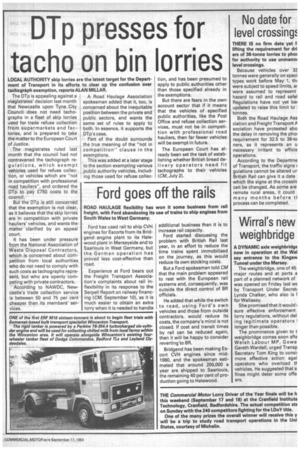Ford goes off the rails
Page 5

If you've noticed an error in this article please click here to report it so we can fix it.
ROAD HAULAGE flexibility has won it some business from rail freight, with Ford abandoning its use of trains to ship engines from South Wales to West Germany.
Ford has used rail to ship CVH engines for Escorts from its Bridgend engine plant to its Halewood plant in Merseyside and to Saarlouis in West Germany, but the German operation has proved less cost-effective than road.
Experience at Ford bears out the Freight Transport Association's complaints about rail inflexibility in its response to the Serpell Report on railway financing (CM. September 10), as it is much easier to obtain an extra lorry when it is needed to handle
additional business than it is to increase rail capacity.
Ford started discussing the problem with British Rail last year, in an effort to reduce the time trains spent immobilised on the journey, as this would reduce its own stocking costs.
But a Ford spokesman told CM that the main problem appeared to rest with the European rail systems and, consequently, was outside the direct control of BR officials.
He added that while the switch to road, using Ford's own vehicles and those from outside contractors, would reduce its costs, the company's mind is not closed. If cost and transit times by rail can be reduced again, then it will be happy to consider reverting to BR.
Bridgend has been making Escort CVH engines since mid1980, and the spokesman estimated that around 200,000 a year are shipped to Saarlouis, the remaining 40 per cent of production going to Halewood.
































































































